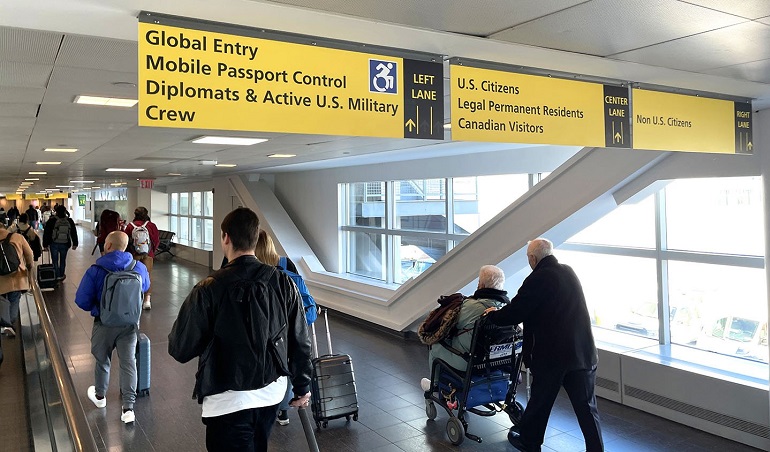Expiration of Humanitarian Parole: An Uncertain Future for Thousands of Immigrants
By Héctor Benítez Cañas
Thousands of immigrants who arrived in the United States under the humanitarian parole program face an uncertain future as the expiration of their temporary permits approaches. The program, designed for citizens of Cuba, Haiti, Nicaragua, and Venezuela, grants a two-year stay authorization. However, once that period expires, those who fail to adjust their immigration status face the threat of deportation.
The humanitarian parole was implemented for Venezuela in 2022 and for Cuba, Nicaragua, and Haiti in 2023, to provide relief to immigrants from countries facing political and social crises, allowing them to enter the U.S. in an orderly and safe manner. However, this relief is temporary.
According to officials from the Department of Homeland Security (DHS), those who do not obtain asylum or another legal way to remain in the country must leave the U.S. once their parole expires. Otherwise, they could face deportation proceedings.
The main challenge for many lies in the limited legal options available to regularize their status. Obtaining asylum is a long and complicated process with high rejection rates. The growing pressure on immigration courts has slowed down applications, leaving thousands of immigrants in legal limbo. Other programs, such as work visas or family reunification, also have requirements that not everyone can meet.
Despite these challenges, DHS has made it clear that parole does not guarantee permanent stay, and its purpose is to provide temporary relief. “Individuals who do not regularize their status must leave the country or face deportation,” warns a DHS spokesperson.
For beneficiaries of the program, time is running out. Seeking legal options is crucial to avoid deportation. This is especially true for those from Haiti, Nicaragua, and Venezuela, as Cubans benefit from the Cuban Adjustment Act, which allows them to apply for permanent residency after one year and one day. However, congestion in the system and lack of proper guidance leave many facing an uncertain future, constantly fearing being forced to leave the country that once gave them temporary refuge.
The challenge is clear: those benefiting from the humanitarian parole must act quickly, alongside professionals, to secure their place in the U.S. before it’s too late.
(*) Immigration attorney in Miami, United States. His firm, Benme Legal, specializes exclusively in immigration law.
If you are seeking legal advice, do not hesitate to contact us by clicking the following link:






